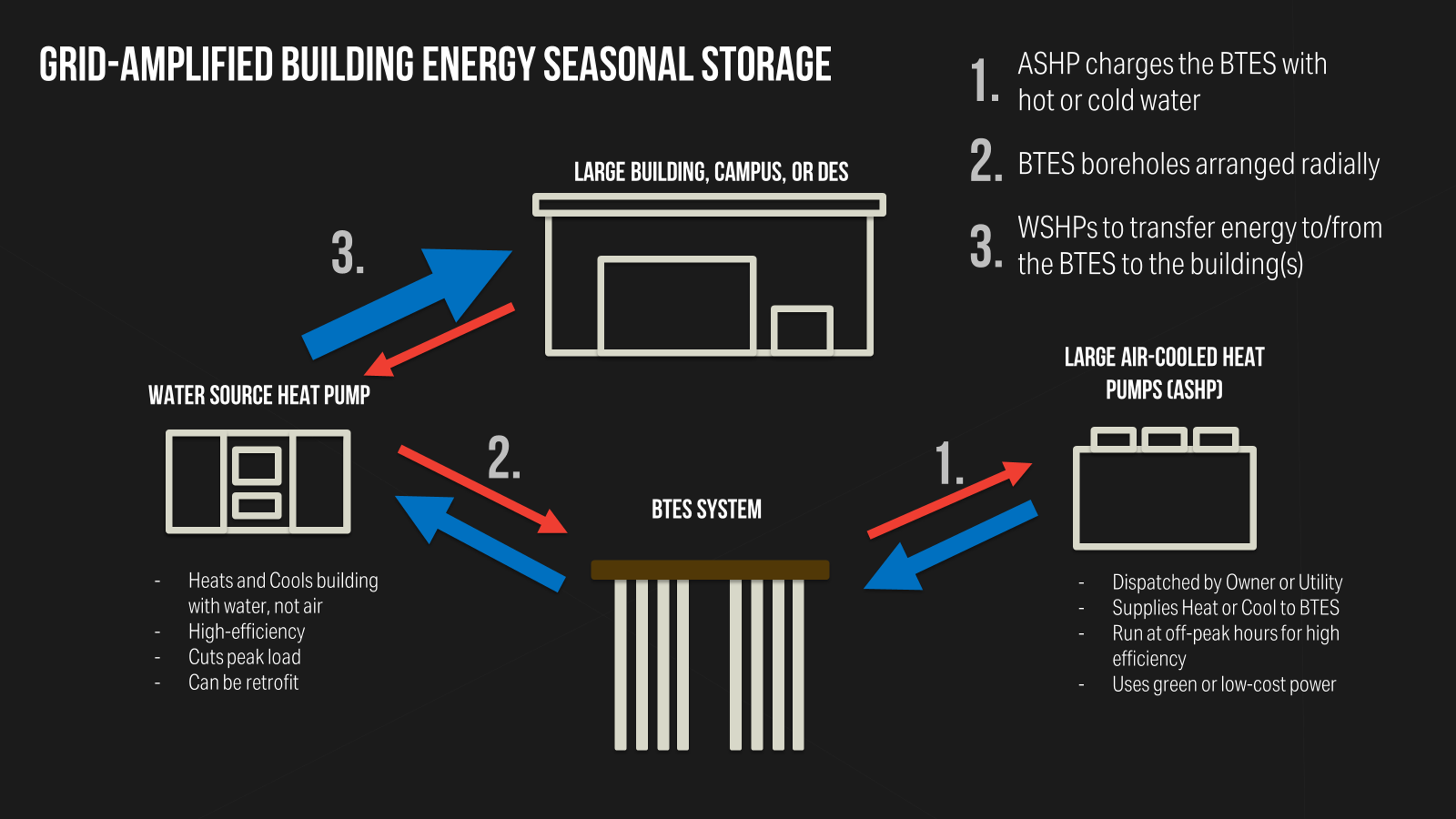The GABESS Model: Joint Base Andrews' Path to Sustainable Energy Storage
Energy storage has become an important part of modern infrastructure, playing a significant role in meeting the energy needs of multiple industries. An efficient energy storage system ensures an uninterrupted power supply and helps reduce energy consumption, contributing to a decarbonized future. So, imagine having a system that could store enough energy to meet a U.S. military base’s needs and integrate with existing infrastructure—it can make a world of difference.
Joint Base Andrews (JBA), located in Washington, DC, is a military base with high energy requirements. A feasibility study was needed for a thermal energy storage system to improve energy efficiency and reduce carbon emissions. The project sought to meet the heating and cooling demands of the base using renewable energy sources while capitalizing on excess renewable energy and off-peak power cost reductions to achieve JBA’s economic, resiliency, redundancy, and decarbonization goals.
To achieve this, RESPEC proposed using Grid-Amplified Building Energy Seasonal Storage (GABESS) technology, which merges air and water source heat pumps, a thermal energy network, and Borehole Thermal Energy Storage (BTES) to store, amplify, and deliver thermal energy. The heat pumps boost the energy stored in the BTES beyond the electricity it consumes, which is then used directly for building temperature control. The BTES’s capacity for long-term storage makes GABESS ideal for District Heating and Cooling Thermal Microgrids, especially for multi-building sites. RESPEC’s INF team selected 20 buildings, conducted field verifications of the existing HVAC systems, and developed specific retrofit strategies to integrate these systems with the district energy loop.

Increasing resiliency, efficiency, and carbon dioxide reduction by leveraging geothermal borehole storage alongside hybrid geothermal and air-source technologies promises substantial energy management improvements for the base. RESPEC is working closely with Lawrence Berkeley National Lab to perform the study and incorporate GABESS into JBA’s model solution space.
Integrating renewable energy and storage solutions in a demanding environment highlights the need for innovative energy management strategies in today’s decarbonization efforts. The expected outcomes include bolstering energy security and reliability for the base’s operations, potentially influencing other military installations to improve energy efficiency and embrace renewable solutions. The project has captured the interest of the United States Department of Defense (DOD), leading to the proposal of a dedicated workshop in Summer 2024. This workshop will convene DOD decision-makers to explore the system’s benefits and potential impacts should it be implemented across military bases throughout the nation.
The JBA thermal project highlights a proactive stance on energy management, showcasing the potential of cutting-edge solutions to tackle energy challenges and offering a blueprint for future sustainable energy practices. The GABESS implementation could set a precedent for energy security, operational efficiency, and environmental stewardship across military and civilian sectors.



Stay in Touch